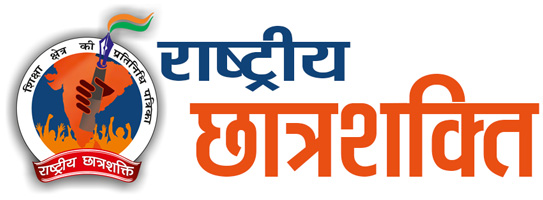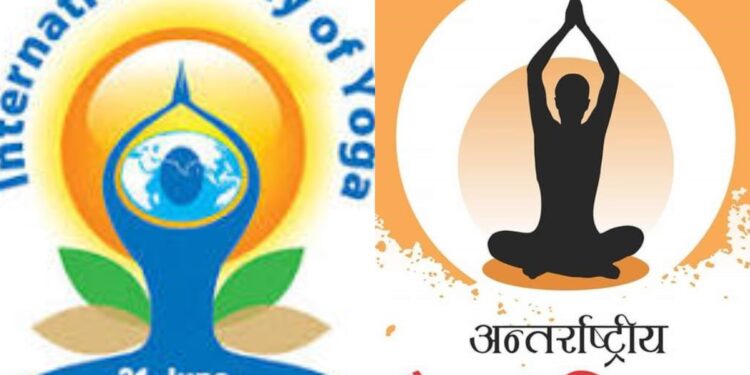Today millions will once again gather to celebrate the International Day of Yoga (2025), a global recognition of an ancient Indian gift to the world for the welfare of mankind. It signifies the idea of “Vasudhaiva Kutumbakam” as we see whole world as family. This year marks 11th International Day of Yoga and the theme is “Yoga for One Earth, One Health”, echoes a timeless truth regarding the Health, Sustainability and Environment that connects with India’s G20 presidency theme “One Earth, One Family, One Future” The Yoga is not merely a fitness routine and a stress-buster. It is the living soul of Bharat that is an expression of our civilizational continuity and spiritual depth. The Yoga Born in the ancient Indian knowledge traditions such Ramayana, Mahabharat, Vedas, Smritis, nurtured in the Upanishads, and codified by sages like Patanjali, Vivekananda etc. Yoga provides the Indian vision as a way of life, harmonious integration of body, mind, and spirit. During the age marred by ecological imbalance, moral crisis, and cultural rootlessness, The Yoga reaffirms Bharat’s role as a “Vishwaguru “a civilizational guide as leader. By Yoga, India is not just offering wellness, it is reclaiming its rightful place as the spiritual conscience of the world
Yoga in the Indian Civilizational Tradition
Yoga is an ancient Indian philosophy it’s not any new discovery, nor is it merely a cultural export. The civilizational inheritance of Bharat and a spiritual science evolved over millennia through ‘Tapasya’ (austerity) and ‘jnana’ (wisdom) on the sacred land of Bharat. The journey of Yoga is rooted in the ancient Indian texts and scriptures such as Epics, Vedas and matured through the Upanishads, The systematic codification of yoga is given in Patanjali’s Yoga Sutras, where the path to liberation (Moksha) is outlined through Ashtanga Yoga, eight limbs leading from ethical living (Yama) to self-realization (Samadhi). The Sanatan Dharma’s practical embodiment is Yoga that is an eternal order. It guides us towards Dharma (righteous living), Ahimsa (non-violence), Satya (truth), and culminates in Moksha (liberation). These are not merely idealistic concepts; they are the cornerstones of civilization that made Bharat a place of sages, philosophy, and wisdom. The ego can be transcended by yoga, which also connects with divinity, the divine law that brings harmony to the universe. Yoga’s knowledge has never existed in a vacuum; rather, it is entwined with other Indian knowledge systems such as Ayurveda, which maintains body balance, Vedanta, which offers its spiritual perspective, and Sankhya, which provides its metaphysical foundation. It’s a comprehensive approach that contrasts sharply with the fragmented nature of contemporary living. However, understanding one’s inner self is just as important as perfecting the postures in yoga. In the current global system, yoga is the lifeblood of our civilizational rebirth. Bharat’s spiritual traditions, including yoga, were methodically disregarded and misunderstood over the centuries of foreign invasion and colonial control. Yoga was rejected by the British colonial mindset, which was based on racial and civilizational superiority, as “oriental mysticism” that was, in their opinion, illogical, archaic, and unscientific. In addition to being an academic neglect, it was a calculated attempt to cut India off from its heritage and impose Western ideas. However, because Bharat’s soul is everlasting, it cannot be extinguished. The resurrection of yoga in the post-colonial age is attributed to the rise of visionary saints and philosophers who reignited the practice’s latent flame. During his speech at the 1893 Parliament of Religions in Chicago, Swami Vivekananda asserted that yoga was the foundation of India’s spiritual legacy. Sri Aurobindo also highlighted the essential nature of yoga, not as a means of escape but as a force that transforms life and society. These philosophers, sages, and innumerable other members of the spiritual renaissance movement restored yoga as the foundation of Bharat’s civilization and rescued it from colonial distortion. In the modern time the global recognition of Yoga enshrined in the International Day of Yoga by United Nations, that is not just a celebration of health, but a victory of cultural decolonization and a step towards reinstating India as a spiritual beacon for human welfare and global prosperity.
International Day of Yoga: Reclaiming India’s Voice on the Global Stage
The International Day of Yoga, which was proclaimed by the UN on December 11, 2014, was more than just a significant diplomatic achievement for India on a worldwide scale. Additionally, it was a proclamation of civilization. In his first UN speech, Prime Minister Narendra Modi proposed the resolution, which was overwhelmingly supported by 177 nations from all continents, faiths, and philosophies. When Bharat started to proudly and unabashedly express its old culture and knowledge system on the global stage, it was a momentous occasion. India’s cultural diplomacy is based on “Sanskriti” (culture) and “Samskara” (values), as opposed to traditional diplomacy that is centered on strategic objectives. Through yoga, India has demonstrated soft power rooted in its cultural legacy and leadership for global peace based on “dharma,” or righteousness, rather than supremacy. Today, yoga is taught in schools, colleges, jails, the military, and business offices, and it is practiced in more than 190 countries. It brings together people of all races, classes, and creeds who share India’s enduring ideal of “Vasudhaiva Kutumbakam.” “Yoga for One Earth, One Health” strikes a profound chord with the essence of yoga. In a time when violence and consumerism are dividing the world’s population and compromising health, it provides a spiritual alternative, a path of ethical living, ecological balance, and physical and emotional discipline. India is reaffirming its role as a Vishwaguru, a civilizational guide for a fragmented and ignorant world through the International Day of Yoga, in addition to promoting a practice. The Stress, war, materialism, and the ecological disaster are all intertwined in the modern world. In the middle of this turbulence, yoga emerges as Bharat’s intellectual gift to humanity, a timeless route to inner peace, moral behavior, and the benefit of all people rather than as a luxury or a passing fad. Yoga uses discipline and practice to bring the body, mind, and spirit into alignment. Deeply ingrained in the Indian Knowledge System, it promotes self-control over indulgence, responsibility over desire, and balance over excess. It encourages ecological attention by viewing nature as a manifestation of the Divine rather than as a resource to be exploited. Yoga provides a grounded, holistic, and sacred civilizational alternative in a society that is collapsing from within. It is an also continuation of the civilizational dharma that India has upheld for millennia, now being reasserted with cultural confidence, however the sacred legacy faces dilution in some phases. In the Western world, Yoga is too often reduced to asana routines, commercialized and stripped of its spiritual core from its heart. This kind of commodification distorts the Bharatiya spirit from which Yoga emerged. India must not just take credit for Yoga but also it must reclaim the narrative that the original thought of Yoga is holistic in nature. The protection of Yoga is to protect the soul of Bharat, and to share it to serve the soul of humanity.
Conclusion
Yoga is not just a sequence of postures or not only a wellness routine, it is the soul-script of Bharat, a sacred inheritance passed down from the Rishi Parampara of this motherland. Our philosophers and sages like Patanjali, Yajnavalkya, Kapila, Vivekananda and countless others did not “invent” Yoga but they realized it through inner discipline, tapas, and communion with the cosmic order throughout the centuries. The Yoga was a way for them to align the individual self (Atman) with the universal consciousness (Brahman) a path of Kaivalya (Samadhi). The International Day of Yoga, 2025 is more than an event, the India’s civilizational assertion, a reminder that Bharat is not merely a participant in the global order but its moral compass for the global well being. The whole world torn by materialism, conflict, and alienation, Yoga offers a vision of integration of self with society, humanity with nature, finite with the infinite and Shiva with Shakti. The leadership of India today must rise beyond geopolitics and economics, it must reclaim its natural role as a Vishwaguru, a teacher of spiritual values, dharmic living, and holistic consciousness for the welfare of humankind. This is not a political project, but a civilizational duty as a responsible actor in global community. Yoga is our soft power, but more than that it is our civilizational shakti, the essence of Bharat’s cultural continuity and spiritual depth which is developed in Bharat throughout the centuries. As we celebrate this International Day of Yoga 2025, with the mantra “Yoga for One Earth, One Health”, let us all remember to practice Yoga to embody Bharat. To Share Yoga to serve humanity, to preserve its authentic Bharatiya roots to honor our ancestors, uphold our dharma, and guide the world not through force, but through truth, tapasya, and wisdom.
(Author is Assistant Professor, University of Delhi)

